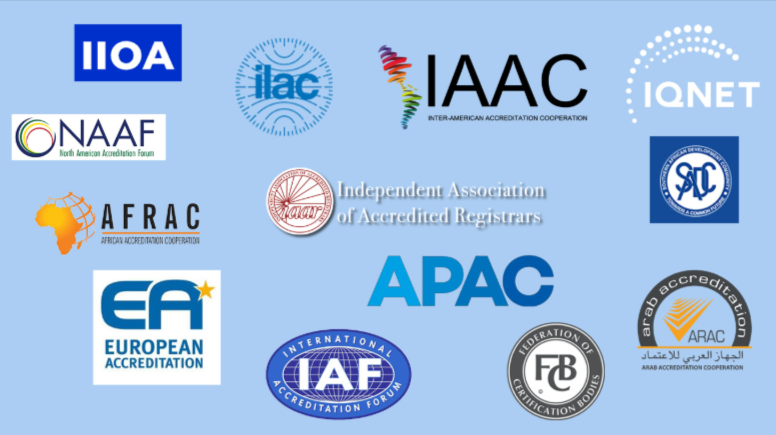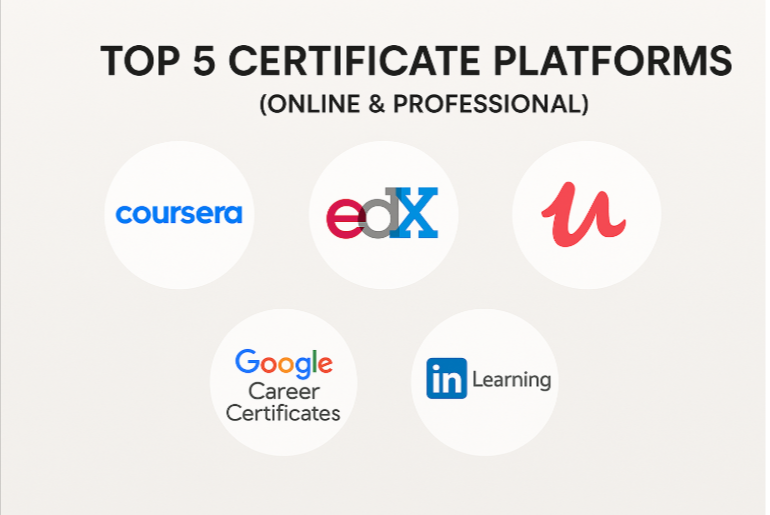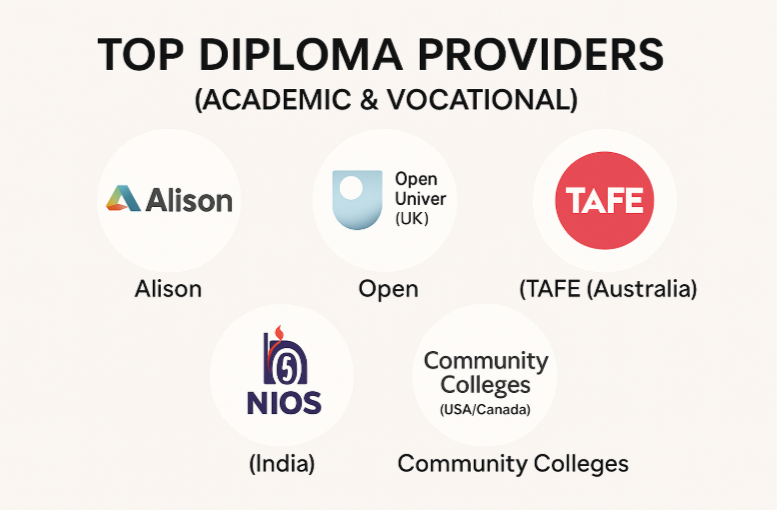Certificates focus on specific skills and can be completed in a few weeks to a few months, whereas diplomas provide comprehensive knowledge over a period of 1-2 years. The choice depends on your career goals, timeline, and budget.
Today’s learners are increasingly exploring non-traditional educational pathways that offer faster and more focused alternatives to traditional four-year degrees.
With the job market evolving rapidly and employers valuing skills over credentials in many fields, certificates and diplomas have emerged as practical options for career advancement and skill development.
This guide highlights the key differences between certificates and diplomas, helping you make an informed decision based on program depth, cost, career impact, and scheduling flexibility.
What Is A Certificate Program?
Certificate programs are short-term, focused educational courses designed to build specific skills in particular areas. These programs typically last from weeks to 12 months, concentrating on practical, job-ready competencies.
Available both online and in person, certificate programs offer maximum flexibility for working professionals. Many platforms like LinkedIn offer free courses that allow you to explore different fields before committing to paid programs.

They come in three types: academic certificates, offered by colleges; professional certificates, which require industry-specific training; and technical certificates, which focus on hands-on skills and practical applications.
These programs are ideal for career changers, professionals seeking upskilling, and individuals requiring rapid skill acquisition for career advancement.
What Is A Diploma Program?
Diploma programs are longer educational courses providing comprehensive knowledge and extensive practical training in specific fields. These programs typically span 1-2 years, offering comprehensive coverage of subject matter compared to certificates.

Diplomas are common in technical, trade, and professional fields such as nursing, engineering technology, business administration, and culinary arts.
They’re suitable for recent high school graduates, international students seeking a career-focused education, and professionals making significant career transitions that require substantial foundational knowledge.
Certificate Vs Diploma: Key Differences At A Glance
Understanding the key distinctions between certificates and diplomas is essential for making informed educational decisions. The following comparison highlights the fundamental differences across various crucial factors.
| Feature | Certificate | Diploma |
|---|---|---|
| Duration | Weeks to 12 months | 1 to 2 years |
| Focus | Specific skill | Broad knowledge area |
| Level | Entry to intermediate | Intermediate to advanced |
| Cost | Low to moderate | Moderate to high |
| Flexibility | High (often online) | Less flexible |
| Outcome | Career upgrade or skill add-on | Job readiness or academic pathway |
| Recognition | Industry-focused | Academic + professional |
Certificates offer quicker entry with targeted skills, while diplomas provide deeper knowledge with broader career applications, making diplomas potentially more valuable for long-term career development.
Pros & Cons Of Certificates & Diplomas
Certificate and diploma programs each offer distinct advantages and limitations that directly impact your learning experience and career outcomes. Understanding these trade-offs helps in selecting the most appropriate educational path.
Pros Of Certificate Programs
- Rapid skill acquisition through focused,industry-relevant training.
- Significant cost savings, with some platforms offering discounted access to premium courses.
- Exceptional flexibility with online options.
- Industry-relevant curriculum.
- Ideal for quick career pivots.
Cons Of Certificate Programs
- A narrow scope restricts advancement opportunities.
- Limited employer recognition in some industries.
- May not meet regulatory requirements for specific positions.
Pros Of Diploma Programs
- Comprehensive education with deeper coverage.
- Higher employer recognition.
- Broader job opportunities.
- Stronger academic foundations.
- More networking opportunities.
Cons Of Diploma Programs
- Longer time commitments delay workforce entry.
- Higher financial investment.
- Less scheduling flexibility.
Certificate Vs Diploma: Which Is Better For Your Career?
The choice between certificates and diplomas depends on your industry, career stage, and specific job requirements. Different sectors value these credentials differently based on their complexity and regulatory requirements.

1. IT & Technology
Technology fields often favor certificates due to an emphasis on current skills over formal education. Google IT Support Certificate leads directly to help desk positions, while Computer Applications diplomas provide broader foundational knowledge for various tech roles.
For beginners entering the tech field, exploring IT certifications designed for newcomers can provide a clear pathway to building foundational skills before advancing to more specialized credentials.
2. Healthcare
Healthcare typically favours diplomas for direct patient care roles, such as nursing assistants or medical technicians, where comprehensive knowledge is essential. Certificates in specialised areas, such as CPR or medical coding, serve as valuable additions to the qualifications of existing professionals.
3. Business/Marketing
Business sectors are showing flexibility in accepting both credentials. Digital Marketing certificates quickly prepare you for specific online marketing roles, while Business Administration diplomas offer comprehensive preparation for management positions and academic progression pathways.
Use Case Scenarios: When To Choose a Certificate And A Diploma?
Your circumstances, career goals, and timeline constraints should guide your decision between certificates and diplomas. Consider the following specific scenarios to determine which option best aligns with your situation.
Choose Certificates If
- You need rapid skill acquisition to capitalize on immediate opportunities.
- Transitioning between industries requires specific competencies.
- Limited time availability or budget constraints.
- Seeking skill validation for current role advancement.
Choose Diplomas If
- Starting completely new careers requires comprehensive knowledge.
- Valuing academic recognition for long-term progression.
- Planning to pursue higher education later.
- Need credentials supporting sustained career growth.
The key distinction is that certificates serve immediate skill needs, while diplomas build comprehensive expertise for sustained career growth.
Accreditation & Recognition: Certificate & Diploma
Accreditation ensures that employers and institutions recognize your education, as your chosen program comes from accredited institutions recognized by relevant industry bodies or government agencies.

Not all credentials are created equal. Here’s what employers actually recognize:
1. Healthcare: Penn Foster Medical Assistant (ABHES), Purdue Health IT (CAHIIM)
2. Tech: CompTIA A+, Cisco CCNA, Google IT Certificate
3. Business: ASU Business Certificate (AACSB), PMP Certification
4. Trades: Lincoln Tech Automotive, UTI Diesel (ACCSC)
Verify legitimacy at CHEA.org before enrolling. Your career depends on choosing recognized programs.
Pathways To Further Education Via Certificate Or Diploma
Both certificates and diplomas serve as stepping stones to higher education. Many certificate programs allow for credential stacking or the application of credits toward diploma programs.
Diploma graduates often transfer credits to bachelor’s degree programs, particularly in Canada, Australia, and the United States.
It’s essential to research various colleges and their transfer credit policies to ensure your diploma credits will be recognized by your target university.
This stackable approach allows starting with shorter programs and building toward comprehensive qualifications as careers develop.
Best Platforms To Get Certificate And Diploma Programs
The digital education landscape offers numerous platforms for both certificate and diploma programs, each with unique strengths and specializations.
Top 5 Certificate Platforms (Online & Professional)
Online certificate platforms have revolutionized professional development by offering industry-recognized credentials from leading companies and universities. These platforms provide flexible learning schedules and often include hands-on projects that demonstrate real-world application of skills.

The following platforms represent the most established and widely recognized options for professional certificate programs:
| Platform | Notable Programs | Average Cost |
|---|---|---|
| Coursera | Google, Meta, and IBM Certificates | $49 – $79 /month |
| edX | Harvard, MIT, Microsoft | $50 to $300 |
| Udemy | Digital marketing, coding, and design | $20.00 per month |
| Google Career Certificates | IT Support, Data Analytics | $49 per month |
| LinkedIn Learning | Soft & technical skills | $5.88/month |
Coursera and Google Career Certificates stand out for their direct industry partnerships and employer recognition, making them excellent choices for career-focused learning. However, before committing to monthly subscriptions, it’s worth exploring whether Coursera certificates provide real value in your specific industry and career stage.
Coursera even offers a 40% discount on its annual subscription for both new and existing users.
Top Diploma Providers (Academic & Vocational)
Diploma programs typically require a more structured academic environment and often involve practical training components that online-only platforms cannot provide effectively.

These institutions offer comprehensive diploma programs with strong academic foundations and industry connections:
| Institution | Popular Diplomas | Cost Range |
|---|---|---|
| Alison | Free diploma courses | $24 to $241 per course |
| Open University (UK) | Diplomas in Health, Business, IT | $ 3860.04-$4063.20Per course |
| TAFE (Australia) | Engineering, Hospitality | $5,700 to $24,000 per year |
| IGNOU (India) | Diplomas in management, nutrition | $18.85 to $706.99Per course |
| NIOS (India) | Vocational diplomas | Varies |
| Community Colleges (USA/Canada) | Diploma in Practical Nursing, Accounting | $4,000 to $28,000Per course |
TAFE Australia and Community Colleges offer the most potent combination of academic rigor and practical training, making them ideal for comprehensive career preparation.
For learners considering online alternatives to traditional diplomas, platforms like Coursera offer extensive certificate programs that bridge the gap between short-term certificates and full diplomas.
If you’re unsure about committing to Coursera specifically, exploring alternative platforms can help you find the best fit for your learning style and career objectives.
Conclusion: Certificate Vs Diploma Choose If It Aligns With Your Goals
There’s no universal answer to whether certificates or diplomas are better; the right choice depends entirely on your circumstances, career objectives, and learning preferences.
Both pathways offer valuable opportunities for professional development and career advancement.
Consider certificates if you need quick skill acquisition, have budget constraints, or want to test a new field before making a larger commitment. Choose diplomas if you’re starting a new career, want comprehensive knowledge, or plan to pursue further education.
Remember that these aren’t mutually exclusive choices – you can start with a certificate to gain immediate skills and later pursue a diploma for more in-depth expertise.
The key is to align your educational investment with your specific career goals and personal circumstances.
FAQs
You can secure employment with certificates in fields like IT support, digital marketing, or healthcare (e.g., phlebotomy, medical billing). However, job scope and pay may be limited compared to those with diplomas or degrees.
In many cases, diploma credits can be transferred to a degree program, especially in countries such as Canada, Australia, and India.
Certificates are shorter and focused on specific competencies, whereas diplomas offer a broader range of learning. A certificate doesn’t count as a diploma.
Certificates in technology or healthcare may require updates (e.g., CompTIA, CPR), while diplomas typically don’t expire but may become outdated in rapidly evolving industries.
If the certificate complements your diploma (e.g., diploma in Business + certificate in Excel or Digital Marketing), you can pursue both simultaneously.
